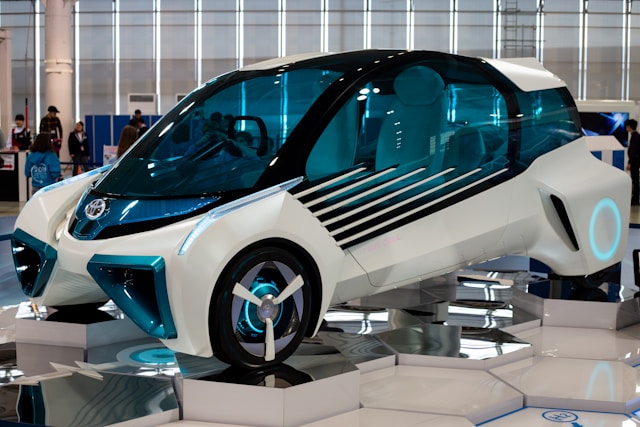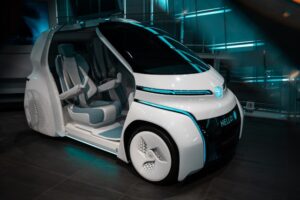“The Sustainability Edge: Why Hydrogen Cars Could Outperform Electric Vehicles in the Long Run”

In the ongoing race towards sustainable transportation, electric vehicles (EVs) have taken the lead, but hydrogen cars may ultimately offer a more sustainable solution. While both technologies have their merits, hydrogen vehicles possess unique advantages that could make them more viable in the long term.
The Challenge of Battery Production
One of the most significant challenges facing electric vehicles is the environmental impact of battery production. EV batteries require lithium, cobalt, nickel, and other rare earth metals, the extraction and processing of which are energy-intensive and have significant environmental and social costs. Mining these materials can lead to deforestation, water pollution, and human rights abuses, making the supply chain for EV batteries a major concern.
In contrast, hydrogen fuel cells do not require these materials. Instead, they rely on a chemical reaction between hydrogen and oxygen to produce electricity, emitting only water as a byproduct. This process reduces the environmental impact associated with raw material extraction, positioning hydrogen cars as a more sustainable alternative in the long run.
Longer Lifespan and Lower Degradation
Another advantage of hydrogen cars over electric vehicles is the longevity of their energy systems. EV batteries degrade over time, leading to reduced range and performance. After several years, this degradation can necessitate expensive battery replacements or lead to diminished vehicle resale value.
Hydrogen fuel cells, however, are more durable and experience less degradation over time. This longer lifespan means that hydrogen vehicles could offer more consistent performance and require fewer costly repairs or replacements, making them a more sustainable choice for consumers looking for long-term value.
Renewable Hydrogen Production
The potential for renewable hydrogen production is another critical factor in the sustainability argument for hydrogen cars. Hydrogen can be produced through electrolysis, which involves splitting water into hydrogen and oxygen using electricity. If this electricity comes from renewable sources like wind, solar, or hydroelectric power, the entire hydrogen production process can be zero-emission.
In contrast, the sustainability of electric vehicles is closely tied to the energy grid that charges them. In regions where electricity is primarily generated from fossil fuels, the overall carbon footprint of EVs can be substantial. Hydrogen cars, with their potential for green hydrogen production, offer a more consistent and scalable path to sustainability.
Infrastructure and Energy Storage
Hydrogen also offers advantages in terms of infrastructure and energy storage. Hydrogen can be stored and transported more easily than electricity, making it a flexible energy carrier. This flexibility allows for the integration of hydrogen into existing energy systems, potentially supporting the storage and distribution of renewable energy.
Moreover, hydrogen refueling infrastructure, while currently limited, can be developed alongside existing fuel station networks. This co-location of hydrogen refueling with traditional gasoline stations could make the transition to hydrogen vehicles more seamless and accessible for consumers.
Conclusion
While electric vehicles have made significant strides in recent years, hydrogen cars offer a sustainability edge that could make them the superior choice in the long run. With fewer environmental impacts from raw material extraction, longer-lasting energy systems, the potential for renewable hydrogen production, and flexible infrastructure options, hydrogen vehicles present a compelling case for the future of sustainable transportation. As the industry continues to evolve, hydrogen cars may emerge as the greener, more sustainable option for eco-conscious drivers.

